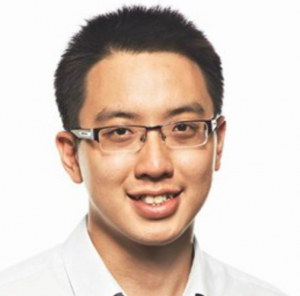Author: Martin Trust Center
MIT’s Storyteller In Residence, Dom Smith chats to Wen Jie Ong about Divaqua, a start-up out of the MIT Delta v program working on water treatment.

Can you tell me a bit about what you do here?
When I got into MIT, I was really excited because there’s no better place in the world to study my two main interests, entrepreneurship and technological innovation. I enrolled here as a PhD in the Chemistry department, at the same time I’m trying to understand more of the business side of things. I have taken several classes with an entrepreneurial twist to them; including Building An Entrepreneurial venture, while I’ve been at the Trust Center and I found them to be very helpful. Through the EIRs, I have felt empowered to try and commercialise an idea developed during my PhD program, that is based around water treatment, using new Polymer chemistry, to enable next generation water treatment, I’ve been working on that for one year.
The highlight has been The highlight was going through Delta-V, the start-up accelerator here, over the summer. The first phase of trying to figure out who the customer is, was really useful, and the second phase, is about transferring from the lab into a working prototype, that second phase didn’t initially come easily for me, and with the help of the EIRs, I was able to make that second step. The third phase was really interesting, and was about trying to turn a technological innovation in the lab into a viable business is something that I have learned throughout my time at the Trust Center.
Would you say that you’ve always had that entrepreneurial spark?
It became clear to me during my undergrad days, that there are two areas of interest that I am passionate about, the first is Chemistry, and that’s why I decided to dedicate five years of my time going after a PhD at MIT! I do not just want to be a scientist, I see a lot of things that I can do that will combine both my interests.
What would you say that your biggest challenges are?
I would say that a traditional PhD, or research project is not targeted towards commercialisation in any sense, it’s targeted to coming up with a novel breakthrough in the lab, and then publishing it. It does not lend itself naturally towards a commercial outcome.
What are your goals for the next six months?
Over the next six months there are two very crucial things that we need to get into place, the first being that we need to launch a pilot because in the water treatment space, the operators tend to be very risk adverse, and they will not adopt a technology that is unproven, and the way to prove a technology is to do a pilot, or perhaps several pilots to prove that it works in practice, and even after that, there are lots of engineering and technological aspects that you need to deal with. This, is not a forte of mine! I am a scientist, I dream up materials and then try to make them a reality in the lab. The second big challenge is to try and commercialise it, and to get the project to a stage where companies will pick up this technology that I have developed. I want it to be in the marketplace, and I want people to use it. I think that water is a scarce resource that we should take care of. I hope that my polymer technology will help in some way towards achieving that goal. I want to see a technology developed in the lab that can be applied in the real world. That is what drives me.
What would be your key tips for budding entrepreneurs?
I think that, you have to have a passion for the ideas that you have. Entrepreneurship is really hard, and if you are not passionate about the problems that you are trying to solve then you are never going to see them through. Also, you cannot do it alone. You need a team of like-minded people with complimentary skill-sets who are trying to solve a tough problem that you are passionate about. The other thing I appreciate is grit, or tenacity. You need staying power. The reason that you are probably doing a start-up is because there’s nobody out there doing the things that you are, and that’s probably because it’s very hard, and if it wasn’t that hard, then someone would have done it before! I think these are the key things every entrepreneur needs before starting out.
Listen to the full interview here:


Follow